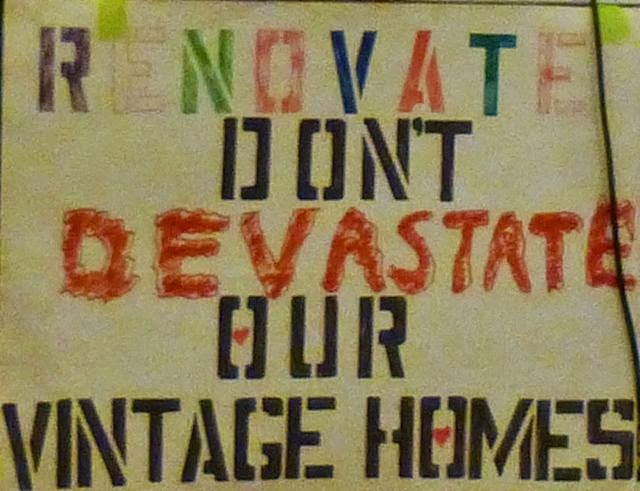 |
| Mr. Pinchot's advice could help here & now. |
As Mill Park and Reed join the group of neighborhood associations supporting United Neighborhoods for Reform's demolition/development resolution, it's time to provide more background on the effort. (For a separate overview of the issues and the players involved, read Brandon Spencer-Hartle's excellent summary on the Restore Oregon site.)
Installment 1 on this blog answered the question What is United Neighborhoods for Reform?
2. What does United Neighborhoods for Reform do?
United Neighborhoods for Reform (UNR) aims to curb the loss of affordable housing and to encourage more positive development in Portland neighborhoods. Through a demolition/development resolution drafted after a series of summits, UNR promotes and presents reasons to make change, and suggests how to do it.
After releasing the demolition/development resolution on Nov. 1, 2014, UNR representatives took it to neighborhood association meetings citywide. Dozens of presentations have been made, with neighborhood associations showing support for neighbors' voice in building Portland's future. (Check top right for an updated list of endorsing associations.)
We continue to garner support and field offers of help; we will need even more as we near Dec. 17, when we take the resolution to City Hall, 1221 S.W. Fourth Ave., at 3:30 p.m.
The destruction of affordable housing decreases economic diversity among neighbors and accelerates gentrification, among other impacts. Other losses typically include elimination of mature tree canopy, reduced access to potential for solar energy, high-quality building materials sent to the landfill, and more.
UNR would like to help Portland regain its reputation as a "green" leader in sustainability and thoughtful planning. Thanks also go to the Development Review Advisory Committee for its preliminary work on these issues; we're making headway for improved investments for all.
Happy Thanksgiving!











